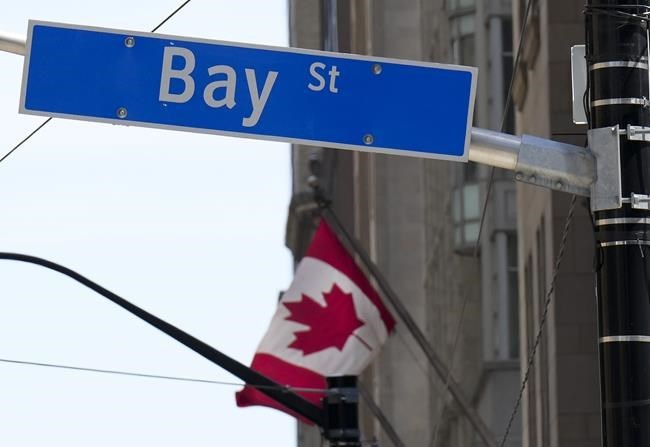TORONTO — Canada's main stock index was up in late-morning trading, led higher by broad gains across all sectors, while U.S. stock markets were also up.
Markets pulled back somewhat in the afternoon from a strong morning but still managed to post gains of between one per cent and more than two per cent in the U.S. The TSX followed a similar pattern but was held back by weakness in energy stocks despite broad-based strength in other sectors.
The S&P/TSX composite index was up 105.26 points at 19,694.16.
In New York, the Dow Jones industrial average was up 336.26 points, or more than one per cent, at 32,155.40. The S&P 500 index was up 64.80 points, or 1.7 per cent, at 3,920.56, while the Nasdaq composite was up 239.31 points, or 2.1 per cent, at 11,428.15.
The fallout from the collapse of Silicon Valley Bank and moves by investors away from risk continued to drive markets Tuesday, said Kevin Burkett, portfolio manager at Victoria-based Burkett Asset Management.
On Monday, markets had an entire weekend’s worth of news to digest, taking stock of what the bank collapses meant for the larger financial system. But Burkett said it’s becoming clear the risk of contagion is minimal, especially with the steps the U.S. government is taking.
“This isn’t 2008. This is 2023,” said Burkett.
Meanwhile, the SVB news has led to some “bad news is good news” reactions among investors, he said.
Tech stocks rose considerably for the second day in a row on optimism that the bank collapses may lead the U.S. Federal Reserve to be more cautious in its interest rate decision next week, said Burkett. Markets are pricing in a raise of a quarter of a percentage point down from half a percentage point last week, he said.
U.S. inflation eased slightly in February but was still high, at 0.4 per cent down from 0.5 per cent in January. Year-over-year inflation was six per cent, down from 6.4 per cent in January.
The Canadian dollar traded for 73.12 cents US,compared with 72.83 cents US on Monday.
Meanwhile, oil prices fell for the second day in a row.
“Oil prices have to fall, because the macro picture is becoming more bleak,” said Burkett. The anticipated demand from China’s reopening hasn’t materialized, and the demand for oil has balanced, he said.
The April crude contract was down US$3.47 at US$71.33 per barreland the April natural gas contract was down three cents at US$2.57 per mmBTU.
The April gold contract was down US$5.60 at US$1,910.90 an ounceand the May copper contract was down five cents at US$4.00 a pound.
This report by The Canadian Press was first published March 14, 2023.
Companies in this story: (TSX:GSPTSE, TSX:CADUSD=X)
Rosa Saba, The Canadian Press

